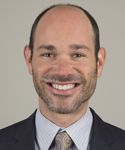 SAN DIEGO—In this age of smartphones, it’s rare to find someone who doesn’t enjoy podcasts. Many people, including clinicians and researchers, are so taken by the medium that they wish to create podcasts on the topics that matter to them. How does one get started? In the ACR Convergence 2023 session titled, Going Viral: How to Achieve Podcast Success, real-life podcasters shared their wisdom.
SAN DIEGO—In this age of smartphones, it’s rare to find someone who doesn’t enjoy podcasts. Many people, including clinicians and researchers, are so taken by the medium that they wish to create podcasts on the topics that matter to them. How does one get started? In the ACR Convergence 2023 session titled, Going Viral: How to Achieve Podcast Success, real-life podcasters shared their wisdom.
ACR’s Official Podcast

Dr. Hausmann
The session’s first speaker was Jonathan Hausmann, MD, assistant professor of medicine, Harvard Medical School, Boston. Dr. Hausmann is host of the podcast ACR on Air, which began in 2019. At that time, Dr. Hausmann was serving on the ACR’s Communications and Marketing Committee when the group proposed creating an official podcast for the organization. Without any prior experience, Dr. Hausmann agreed to serve as its host.
The podcast got listeners’ attention early on, and soon Dr. Hausmann was tasked with planning how best to construct each episode. One key to producing a high-quality show is mapping out episodes in advance. For Dr. Hausmann, this means creating a detailed flowchart of the topics being covered, laid out in a logical order that will make for an engaging interview.
Dr. Hausmann encourages podcasters to perform a deep dive into the material background for every episode. In the case of ACR on Air, this step routinely means becoming intimately familiar with the research literature related to each episode’s topic.
Podcasting is both a science and an art. The more a topic can be brought to life, the more the audience will want to listen. This concept was exemplified by an interview Dr. Hausmann conducted with Marcela Ferrada, MD, who was most recently on the faculty of the National Institutes of Health, Bethesda, Md. Dr. Ferrada conducts research on relapsing polychondritis, a disease that she herself has. In this interview, Dr. Hausmann educated the audience about Dr. Ferrada’s research while giving her the opportunity to share her unique and compelling personal story of living with this disease.
Dr. Hausmann advises potential podcasters to use all resources at their disposal, including ChatGPT, to help formulate interview questions and summarize complex topics. Podcasters should also invest in high-quality sound and recording equipment, even though it can be expensive.

Dr. Brown
Story Telling
The session’s second speaker was Adam Brown, MD, a rheumatologist in the Department of Rheumatologic and Immunologic Disease at Cleveland Clinic, where he is also the associate program director of rheumatology. As the host of the podcast Healio Rheuminations, Dr. Brown is passionate about telling stories. He explained that one of the reasons podcasts succeed is because human beings, by nature, love listening to a good tale.
Dr. Brown illustrated this point by considering a medication that most rheumatologists have heard of—allopurinol—and asking: How was it discovered that allopurinol should not be combined with azathioprine? He explained that in the mid-20th Century, 6-mercapatopurine (6-MP) was found to be effective for treating patients with acute lymphoblastic leukemia. To enhance the action of 6-MP, researchers found that 6-MP could be combined with allopurinol. Although this finding was helpful in the world of oncology, this drug combination can be dangerous when used to treat diseases other than cancer.1
Dr. Brown explained that rheumatologists are warned not to combine allopurinol and azathioprine because azathioprine is the prodrug that breaks down into 6-MP. Combining the two may result in high levels of 6-MP, which can cause blood dyscrasias in some patients.2 By demonstrating the power of historical context and storytelling, Dr. Brown showed the audience how podcasters can both teach and entertain at the same time.
Audience Engagement
The next speaker, Cheryl Crow, MOT, OTR/L, an occupational therapist from Bellevue, Wash., is the founder and the host of the Arthritis Life podcast. She is a health professional living with rheumatoid arthritis and has drawn from this aspect of her life to create a podcast series with more than 130,000 downloads.
Mrs. Crow spoke about how to amplify podcast content. Her approach relies on three steps:
- Know your audience;
- Create compelling content; and
- Connect and follow through.
In terms of knowing your audience, podcasters should ask themselves: Where does my audience hang out online (i.e., Instagram, TikTok, Facebook)? What problems does my audience have that they would want to see addressed?
Mrs. Crow said her most popular podcast episode to date is titled, What’s It Like to Be on Methotrexate? The episode’s popularity surprised Mrs. Crow because she thought that its title wasn’t particularly creative and that the topic would not lure in listeners. However, she learned that a simple title goes a long way if it aligns with the phrases (i.e., search terms) people type into Google. She also discovered that a topic that might seems banal to her—she has been on methotrexate for 20 years—may be highly relevant to people starting this medication.
Producing compelling content can be done by creating static images, audiograms, short video excerpts and promo videos, long form videos and hosting live chats. Each of these content formats helps to attract and engage an audience so that they will explore related content from the same producer.
Mrs. Crow noted that content styles can vary and should reflect the strengths of the content creator. Example: She has a more outgoing personality and good sense of humor. Thus, she makes videos and audio clips that are more fun and entertaining. Other creators may focus on producing content that is inspirational, purely educational or even controversial at times.
Mrs. Crow explained that social media should encourage a dialogue between the podcaster and listeners. It’s important for hosts to solicit and respond to feedback, engage with listeners, use listener suggestions to guide future content creation and ask listeners to help spread the word about the podcast.
Going Viral
The session’s final speaker was Paul Sufka, MD, a rheumatologist at Twin Cities Orthopedics, Eagan, Minn., who discussed the viral strategies used for the COVID-19 Global Rheumatology Alliance.
In March 2020, Leonard Calabrese, DO, vice chair of Cleveland Clinic’s Department of Rheumatic and Immunologic Diseases, suggested via Twitter (now X) that rheumatologists create a secure registry that could be used by patients and providers to catalog cases of COVID-19 infection in individuals with rheumatic diseases. Dr. Sufka joined others to help make this happen. Within months, more than 30,000 cases had been reported through the registry.
The success of this effort demonstrated several important steps necessary when seeking to go viral: establish a website to direct online traffic to the product, use various forms of social media, create an email list serve to communicate with stakeholders and reach out to partner organizations to help spread the word. A registry, such as the one developed by Dr. Sufka and colleagues, should create its own brand with an engaging name and logo, just as a podcaster would. The COVID-19 Global Rheumatology Alliance has continued to be hugely successful and the lessons learned from its creation and deployment can guide those in podcasting and social media.
It’s no surprise that this session was a hit. Each speaker was charismatic, thoughtful and experienced. Hopefully, the session inspired attendees to pursue their own podcasting dreams.
Jason Liebowitz, MD, is an assistant professor of medicine in the Division of Rheumatology at Columbia University Vagelos College of Physicians and Surgeons, New York.
Reference
- Rundles RW. Effects of allopurinol on 6-mercaptopurine therapy in neoplastic diseases. Ann Rheum Dis. 1966 Nov;25(6 Suppl):655-656.
- The mechanism and drug interaction—allopurinol and azathioprine and risk of bone marrow suppression. EBM Consult LLC. 2024.


